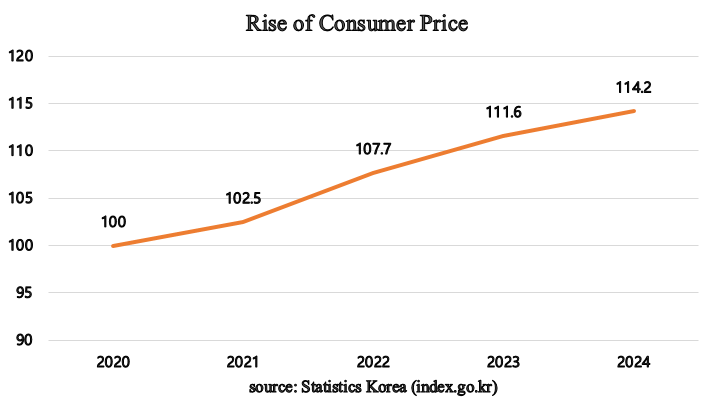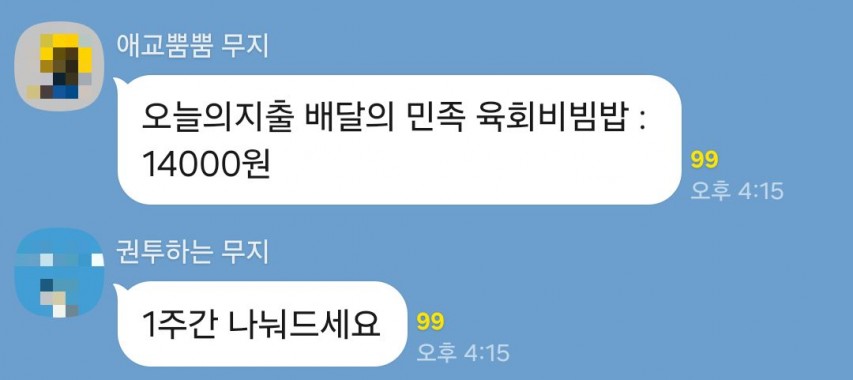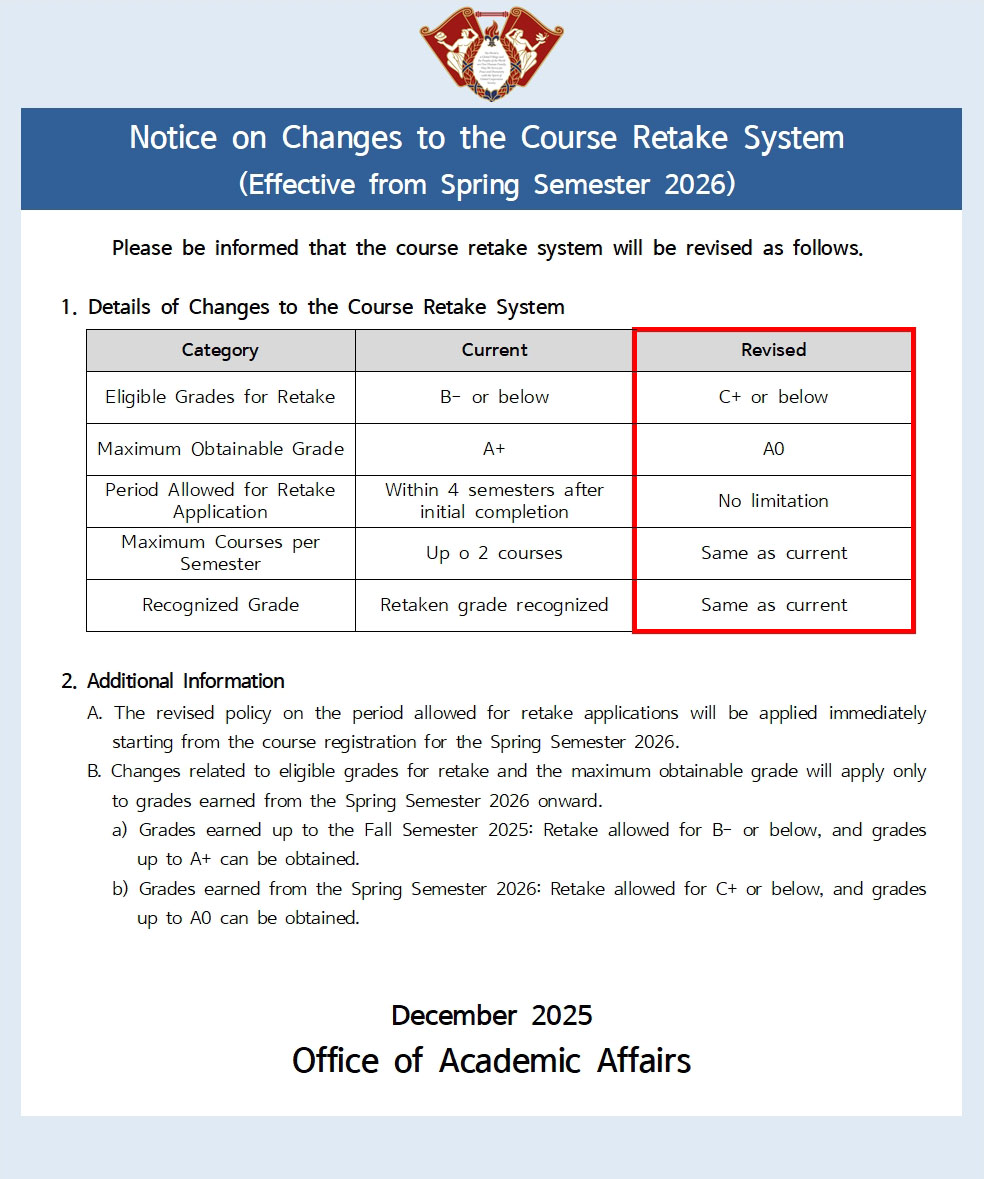[Culture] The YONO Tribe: How Frugality Is Reshaping Consumer Culture
With prolonged inflation and economic uncertainty, frugality has emerged as a dominant trend, giving rise to the “You Only
Need One (YONO)” movement. The YONO Tribe, predominantly composed of individuals in their 20s and 30s, prioritizes essential purchases while minimizing unnecessary spending. The concept contrasts with the You Only Live Once (YOLO) lifestyle, which promotes spending on experiences and self-indulgence.
According to a Korea Broadcast Advertising Corporation survey conducted on December 24, 2024, 80.7% of 2,000 respondents stated that they consciously purchase only what they need and actively avoid non-essential expenses. However, YONO is not just about frugality—it is a shift toward evaluating, curating, and sharing consumption patterns, ultimately shaping broader market trends.
The emergence of the YONO Tribe is largely driven by ongoing inflation and economic stagnation, which have led consumers to adopt more cautious spending habits. Asia Business Daily reports that since 2022, slow economic growth and rising inflation have increased consumer prices by 6.5% over two years. However, wage growth has failed to keep pace, leading to a decline in net income. Under growing financial pressure, many consumers felt burdened and began prioritizing cost-cutting measures in their daily spending.
A 2024 survey conducted by New Worker, a gig economy platform, targeting 827 adults, found that 88.4% believed their financial situation had worsened due to rising prices and tax burdens. Among them, 42.7% reported experiencing significant financial strain, while 45.7% acknowledged feeling some level of impact.

Graph depicting the rise of consumer price Source: Statistics Korea (index.go.kr)
Kim Ye-ryeong, a student at Kyung Hee University’s (KHU) College of International Studies, shared her experience: “I previously purchased snacks and instant food without much thought, but recent price hikes have made me reconsider my spending. I carefully compare product sizes and prices to ensure cost efficiency.” As economic constraints persist, younger consumers are increasingly adopting frugality as a strategic approach, carefully evaluating price efficiency ratios to optimize their purchases.
Consumption Patterns of the YONO Tribe
The spending behavior of the YONO Tribe revolves around two key themes: low consumption and sustainable consumption.
To achieve low consumption, YONO Tribe members actively cut expenditures on food, transportation, and clothing. As a result, budget-friendly brands and cost-effective alternatives have gained popularity, with convenience store meals emerging as a preferred option to minimize food expenses. The Sports Seoul reported that as of April 2024, convenience store sales increased by 5.9% compared to the previous year. Sales of budget-friendly beverages and meal replacement products rose by 7.3%, while instant food sales saw a 3.5% increase.
A similar trend is observed in transportation habits. According to Nong Hyup Bank, the number of taxi rides taken by individuals in their 20s and 30s fell by 21% year-over-year in the first half of 2024, whereas other age groups showed only a 3% reduction. This shift suggests that young adults, as the core members of the YONO Tribe, have increased their reliance on public transportation as a cost-saving measure. Additionally, rental car usage surged by 258%, indicating a growing preference for economical mobility solutions.
The coffee and fashion industries have also been impacted by the YONO movement. Data from NH Nong Hyup Card shows that in 2023, spending at budget coffee chains increased by 37% year-over-year. For the fashion industry, Dailian News reported that searches for private-label apparel brands, which lower costs through integrated manufacturing and distribution, surged by 1,967% compared to the previous year.
Sustainable consumption, another key aspect of the YONO Tribe’s behavior, is not just driven by environmental concerns but also by financial efficiency. This shift has contributed to the rapid expansion of secondhand markets. A report by IGAWorks Mobile Index analyzing YONO consumer trends found that engagement with major secondhand trading platforms increased significantly between 2023 and 2024. Among them, Karrot Market saw a 2.7% rise in users, bringing in 50,000 more users. Bungaejangter and Junggonara recorded 9.9% and 11.6% growth, respectively.
 Members pointing out each other’s expenditures in opened chat rooms
Members pointing out each other’s expenditures in opened chat rooms
Karrot Market, a secondhand trading platform mainly used by the YONO Tribe. Photo: Karrot Market (karrotmarket.com)
This growing secondhand market appeals to the YONO Tribe due to its lower prices and convenient local transactions. Additionally, buyers benefit from real user reviews, which enhance purchasing reliability. The YONO Tribe also embraces sustainability in other ways, such as using reusable containers instead of disposable ones. Through these methods, YONO consumers contribute to sustainability both economically and environmentally.
The YONO Movement Spreads Through Social Media
During the YOLO era, social media was primarily used to showcase luxury purchases and extravagant lifestyles. In contrast, YONO Tribe members leverage these platforms to share budgeting strategies and track their spending habits. KakaoTalk’s open chat room feature has become a key space for frugality-focused discussions, with dedicated YONO lifestyle chat rooms attracting thousands of members. Some chat rooms have over 23,000 participants actively exchanging insights on mindful spending. Members openly disclose their monthly expenditures, receive feedback, and humorously critique each other’s splurges. Many users prominently display their financial goals alongside their usernames, allowing them to track progress and compare habits with peers.

Members pointing out each other’s expenditures in opened chat rooms
Instagram and YouTube have also played a crucial role in amplifying the trend. Frugality-themed content, particularly the No-Spend Challenge, has gained popularity. Participants document extreme budgeting experiences, sharing vlogs on cost-cutting strategies such as preparing homemade meals instead of dining out. As of February 9, 2025, the hashtag NoSpendingChallenge in Korean on Instagram has accumulated over 15,000 posts, reflecting the trend’s widespread appeal among young, digitally active consumers.
While many view the trend as a responsible and practical approach to financial management, some argue that excessive frugality may lead to inconvenience and stress. Critics also suggest that the movement reflects deeper economic difficulties rather than voluntary lifestyle changes. Lee Seok-min, a student in the School of Tourism and Entertainment at KHU, who identifies himself as part of the YONO Tribe, shared his perspective on frugal living: “I acknowledge the benefits of reducing wasteful spending, but extreme thriftiness can become mentally exhausting.”
Despite contrasting perspectives, the YONO Tribe continues to shape consumer behavior and influence market trends. More than just a shift in spending habits, the movement reflects broader socio-economic changes. As rational and efficient consumption becomes the norm, the challenge lies in balancing financial discipline with personal well-being in an increasingly uncertain economic landscape.
There are no registered comments.
I agree to the collection of personal information. [view]


